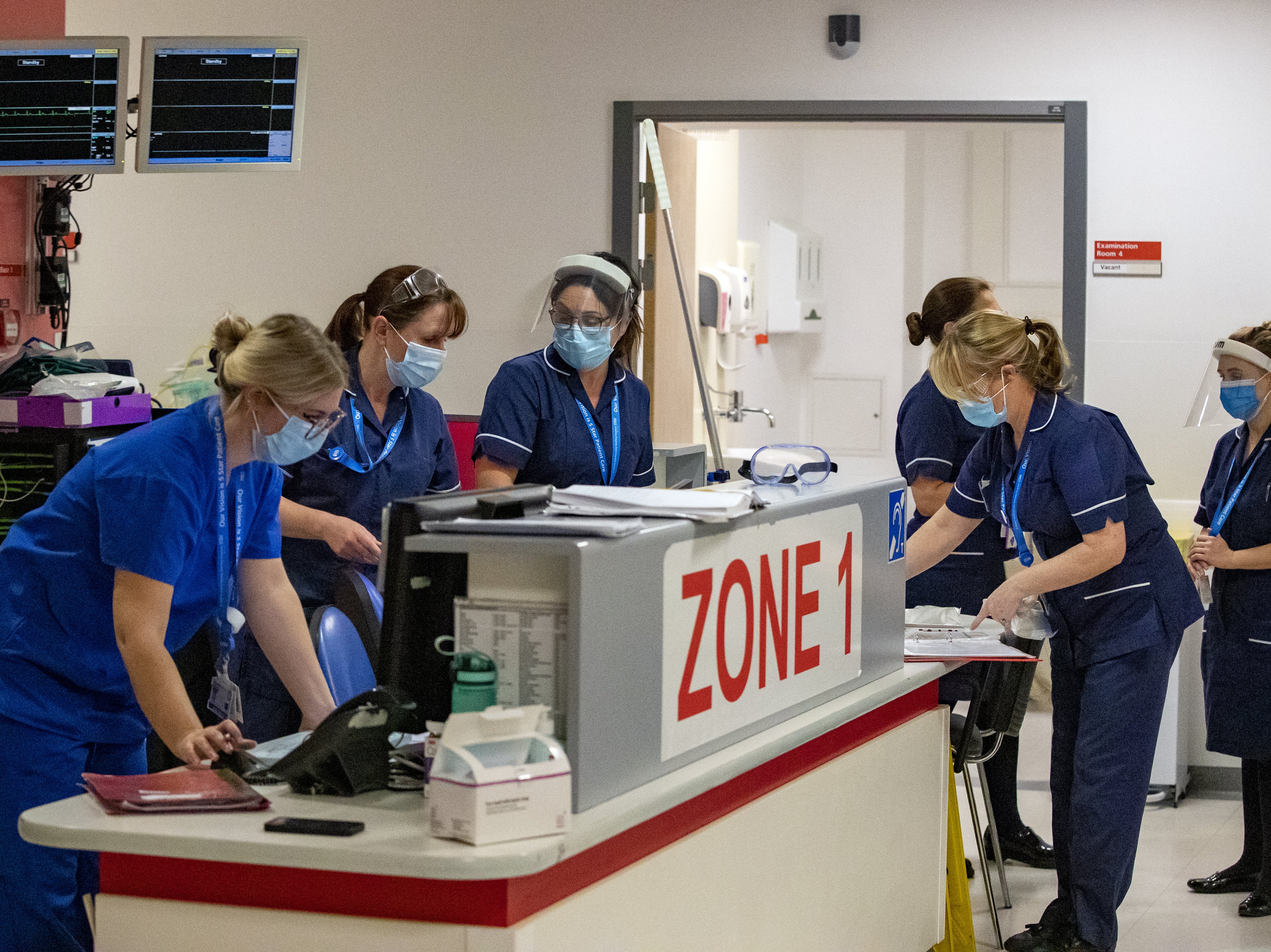Watchdog warns ‘exceptional’ NHS pressure is affecting patient care
Chief inspector of hospitals warns the failure to reform services in previous years has left the NHS vulnerable

The care watchdog has warned that “exceptional” pressures on the NHS is affecting the care of patients across England with healthcare workers pushed to the brink.
Professor Ted Baker, the Care Quality Commission’s chief inspector of hospitals has spoken out as ambulance services report record levels of 999 calls with patients waiting hours in the backs of ambulances outside hospitals.
He criticised the inaction of NHS leaders for not reforming services in recent years before the Covid-19 pandemic, despite previous warnings, which he said meant the NHS was not meeting the needs of patients.
The CQC’s chief inspector of primary care, Rosie Benneyworth, also warned GPs were suffering significant stress, with some unable to sleep because of the pressure they were under.
On Wednesday, the number of Coronavirus patients in hospital across England hit 4,063, the highest number since March.
At a meeting of the CQC board on Wednesday, Prof Baker said: “The problems we are seeing are manifestations of long-term issues within the models of care and how it is provided. We're seeing issues that we should have resolved in previous years coming to the fore because of the pressures from the pandemic.
“It's imperative that not only do we deal with the immediate pressures on the system, we also need to deal with the underlying problems with the models of care.
“If we don't do that, patients will not be able to receive the care we want them to, and the pressure on staff to provide care under these difficult circumstances will continue.”
On Monday, the London Ambulance Service declared an incident after a surge of more than 400 emergency calls in just one hour threatened to overwhelm the capital’s emergency service. Across England, seven out of 10 ambulance trusts have reported being under their highest level of pressure, some for weeks.
Prof Baker said hospitals were under “tremendous pressure” with a “rising tide” of Covid patients and uncertainty about how high the numbers would go.
“We are seeing a very high level of emergency demand this summer, which is exceptional, compared to previous summers and really reflects the level of activity that most of these services see in winter.”
He said the pressures on hospitals were combing together and “having a big impact on their ability to provide patient care as well as they'd like but is also having a big impact on staff, many of whom have been working in a highly pressurised environment now for well over a year. We need to recognise the impact this is having on services in the long-term.”
On Tuesday, as concern over the summer crisis in the NHS deepened, Prof Baker said he met with ambulance chiefs to hear about the strain they were under: “Several of them are reporting their busiest days ever in the last week or so, and this is extraordinary for summer time and is having an impact on their ability to provide care in a way they want to.”
He warned parts of the NHS not to blame each other but to recognise the crisis was a “system issue” adding: “The model of care we provide at the moment really is not delivering the care that people are looking for. We need to look seriously at the model of care.
“There's no doubt at the moment that the front door of the emergency department is seen as the current default for any urgent emergency care. The truth is, it is not set up to provide the care that many people need and they'd be much better cared for elsewhere.
“We need to reflect on this and see that we're not providing care in the way that patients need or want it to be provided. We need to build care around the needs of patients, not around the needs of providers.
“The models of care have to change, and we've seen that in winter, after winter. This is not new to the pandemic, the pandemic has brought it to the fore and has brought it to the fore at the height of summer and that's what's different about things now.”
Rosie Benneyworth, the CQC’s chief inspector for primary care supported his comments and added: “I'm very very worried about what's happening in general practice at the moment.
“The things that we are hearing about are firstly, the very, very, high demand and speaking to GPs who've been GPs for 35 years who said they've never known demand like it is now.”
She said GPs were reporting high demand from people worried about coronavirus as well as the side effects of the vaccines but she also warned: “They're still seeing late presentations of a whole variety of illnesses for people who didn't present during the time of the pandemic and a growing number of people with mental health problems and anxiety.
“We've got a very exhausted workforce. Many GPs are reporting to me that morale is the worst it's ever been. They're working very long hours and I've spoken to GPs who said they're not sleeping because of the stress.”
NHS England did not respond directly to the CQC’s comments on pressures on emergency care but it did say it had made £55 million availabel to ambulance trusts to hire more staff.
A spokesperson said: “Local NHS services are seeing increased demand with tried and tested processes in place to care for patients, while ambulance trusts in England are already starting to benefit from a £55 million boost for extra staff ahead of winter - so if you do have a health concerns, please continue to come forward to the NHS when you need care.”



Join our commenting forum
Join thought-provoking conversations, follow other Independent readers and see their replies
Comments